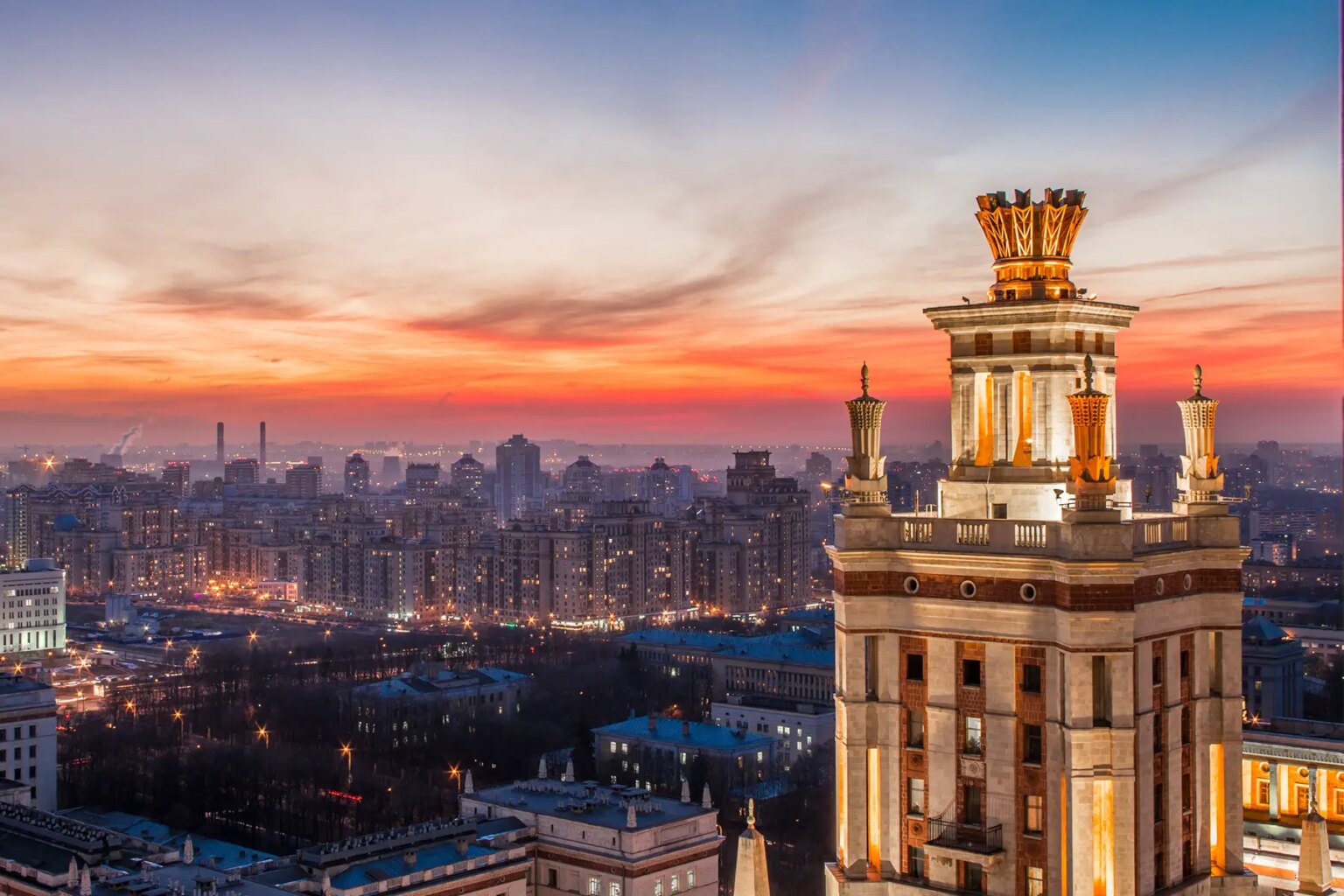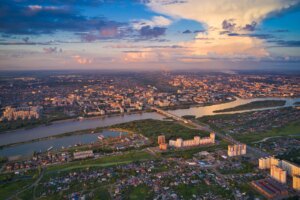Important notice from the Editor in Chief
Maintaining our Russian site is a delicate matter during the war. We have chosen to keep its content online to help our readers, but we cannot ensure that it is accurate and up to date. Our team endeavors to strike the right balance between giving information to those who need it, and respecting the gravity of the situation.
There are plenty of options for choosing where to live in Moscow as a foreigner. Several of Moscow’s suburbs and neighborhoods are popular with foreigners and are teeming with fun things to do. The right area depends on your budget, whether you want a house or an apartment, and where you work; traffic can be a problem in rush hour and in bad weather.
Where is the best place to stay or live in Moscow as a foreigner? This guide takes a look at the main suburbs and neighborhoods in Moscow for expats bound for Russia.
Moscow’s suburbs and neighborhoods
Rather than having the grid system favored by many cities, Moscow works on a ring system. Moscow’s suburbs are typically outlined based on their proximity to the city’s major ring roads.
- Boulevard Ring: the area closest to the city center
- Garden Ring: the large motorway outside the Boulevard Ring
- Third Transport Ring: slightly farther out, originally designed to reduce congestion heading to and from the center
- Moscow Ring Road: outermost ring, marking the city limits
Moscow’s city center neighborhood
Generally, anywhere between the Kremlin (the center point) and the Garden Ring is part of Moscow’s central neighborhood. The rents and property prices in this area reflect this, however.
Moscow’s suburbs in the Boulevard Ring
Tverskaya neighborhood
Tverskaya is a central neighborhood for both tourists and expats in Moscow, all within reach of the city’s main landmarks. The area around Tverskaya Street (which links Red Square and the Kremlin) is ideal for expats who want to be at the center. With modern amenities and nightlife, this area is popular with younger expats. If you’re a central neighborhood but away from the noise, consider Kamergersky Lane.
Patriarshiye Prudy / Patriarch Ponds
Popular with expats and locals alike, this neighborhood is named after its beautiful city park. Bordering the Garden Ring, it’s very close to the city center and various metro stations. With this being a peaceful residential neighborhood in the heart of Moscow, prices are expensive and property is highly sought after.
Christye Prudy
Translating literally to ‘Clean Ponds’, this neighborhood centers on a lake and has a certain charm, with the opportunity to rent boats in the summer and ice skate in the winter. It’s one of Moscow’s popular suburbs for French expats due to the French international school being close by.
Moscow’s suburbs in the Garden Ring
Arbat neighborhood
The majority of the Arbat is in the Garden Ring, although the short stretch past Novoarbatsky Bridge is just outside of the boundary. Arbat is a pretty, pedestrianized area with beautiful architecture, cafés and restaurants, and a unique atmosphere. With embassies located in the area too, property here is expensive.
Tretyakov Gallery Area
With a relatively central location, the Tretyakov Gallery Area is up-and-coming in terms of the property market. It’s also a popular artistic area, with lots of shops, cafés, and boutique bars, as well as a lively nightlife. The main roads here, Pyatnitskaya and Ordynka, tend to get very busy.
Moscow’s suburbs near the Ring Road
Pokrovsky Hills
Located inside Moscow’s Ring Road, the Pokrovsky Hills development to the northwest of the city center is incredibly popular with expats. It is located next to the Anglo-American School of Moscow and has its own European Medical Centre. This secure community of 207 townhouses is 16km from the Kremlin. It’s one of the most sought after areas for expats moving to Moscow.
Rosinka neighborhood
Outside of the city limits, Rosinka International Residential Complex draws expats who work in the west of the city. While it’s farther out than Pokrovsky Hills, Rosinka benefits from being home to the British International School.
Outer neighborhoods in Moscow: beyond the Garden Ring
Frunzenskaya Area
Inside the third ring road, Frunzenskaya is one of Moscow’s greener areas, overlooking Gorky Park. This area is popular with growing families, although the apartments tend to be on the small side and can also be quite expensive.
Leningradsky Prospekt
Leningradsky Prospekt is Moscow’s bohemian village, home to artists and creative people. Expats in search of a more quirky and unique neighborhood in Moscow will enjoy it here, but may be put off by frustrating rush hour commutes into the city center.
Barrikadnaya Area
In the northwest of Moscow and just outside the Garden Ring, Barrikadnaya is home to well-off expats, with several luxury residential developments completed in recent years. Public transport access is good, and the American Embassy is nearby.
Best places to live outside of Moscow
As with all major cities, Moscow has a number of commuter towns, many of which offer direct trains to the city. While each of the towns listed below can be reached by the city center in 30–55 minutes door-to-door by train, it’s a different story if you’re driving. For example, a rush-hour journey from Odintsovo takes 30 minutes by train, but can take as long as two hours by car, which doesn’t mean that having a Russian driver’s license isn’t necessarily going to speed up your commute. However, you may be able to get more space for your money, so can still be an option.
Where to live outside of Moscow:
- Podolsk: 44km, 55-minute journey on public transport
- Odintsovo: 25 km, 30-minute journey on public transport
- Lyubertsy: 25 km, 35-minute journey on public transport
- Korolev: 28 km, 30-minute journey on public transport



